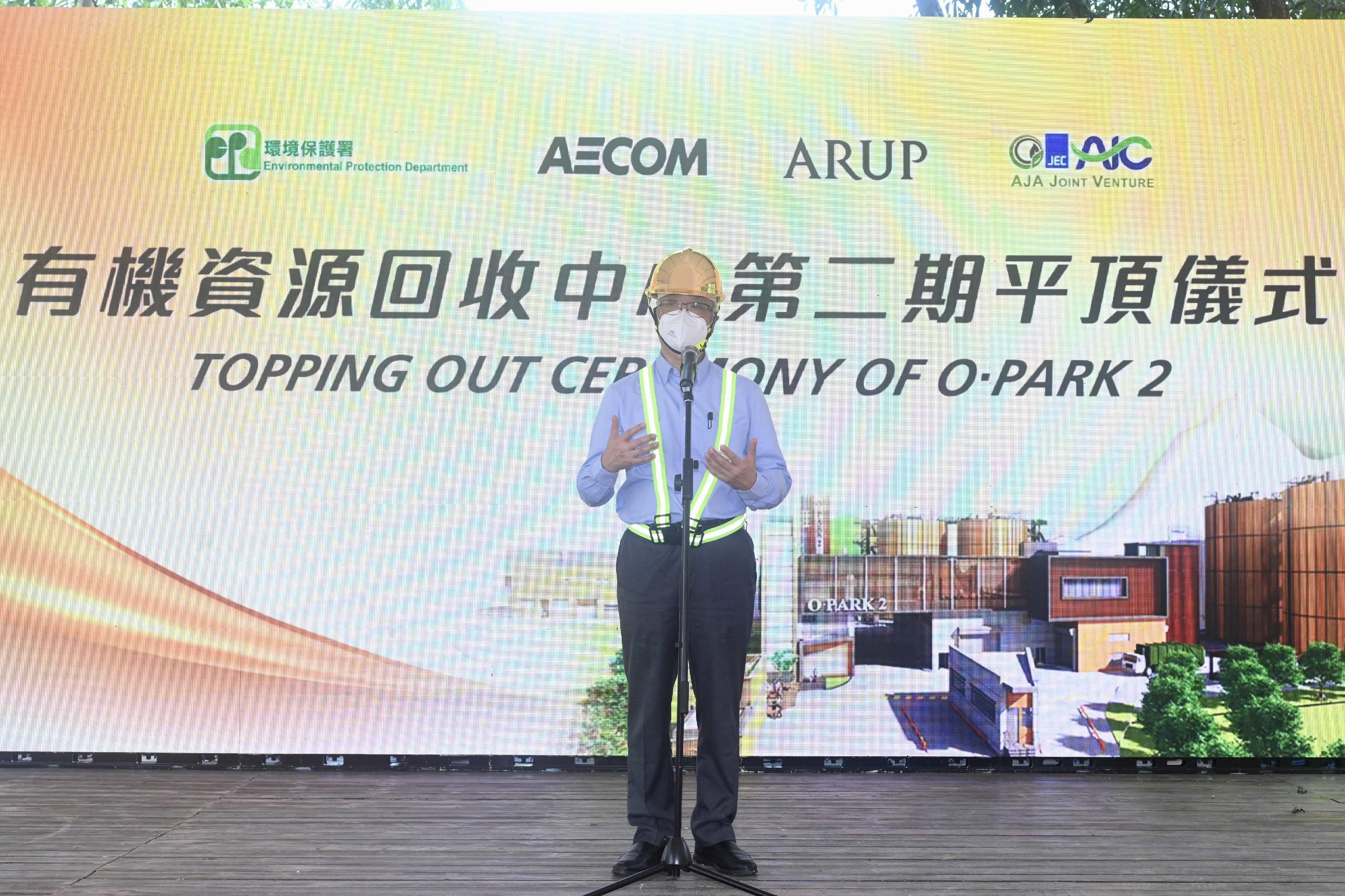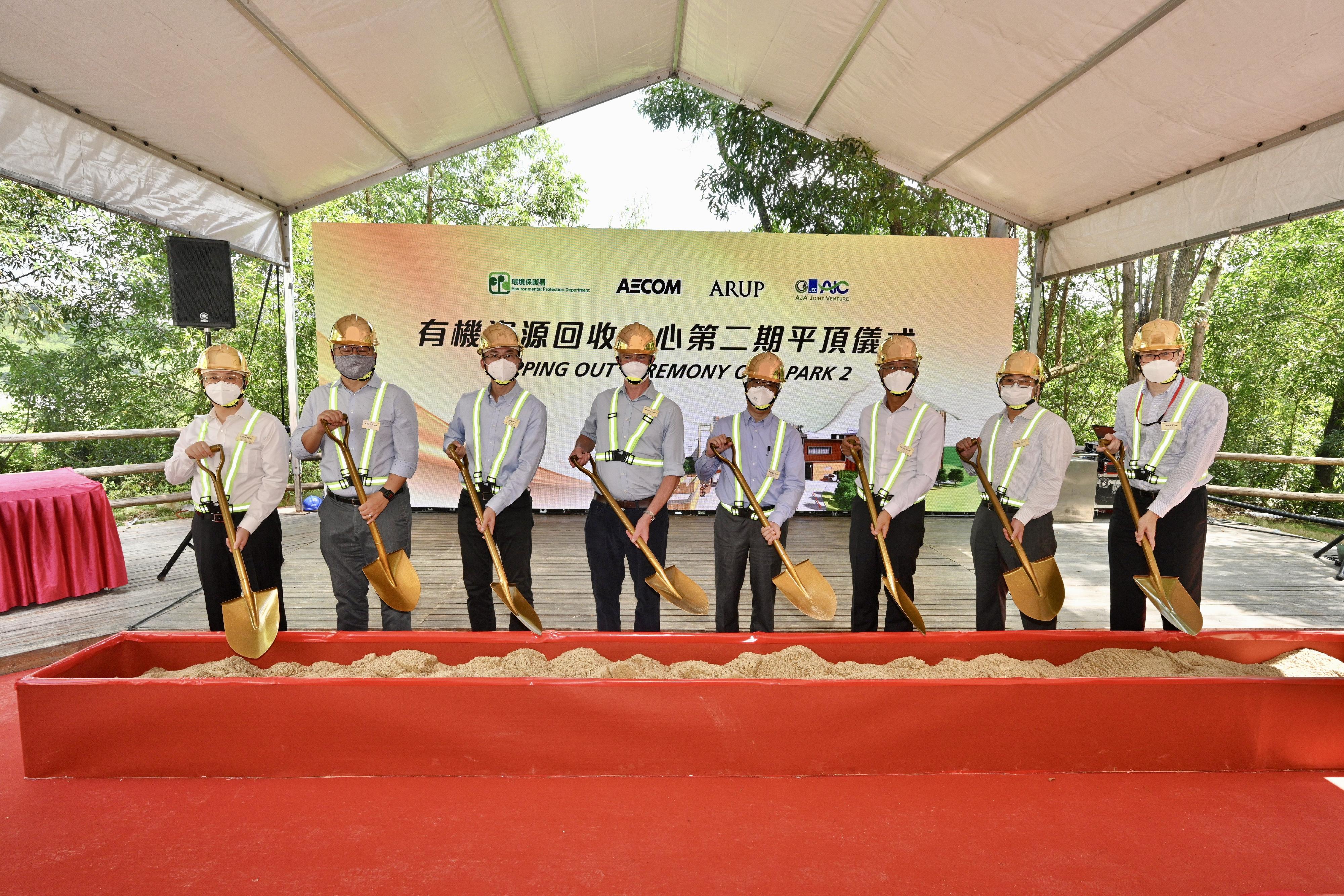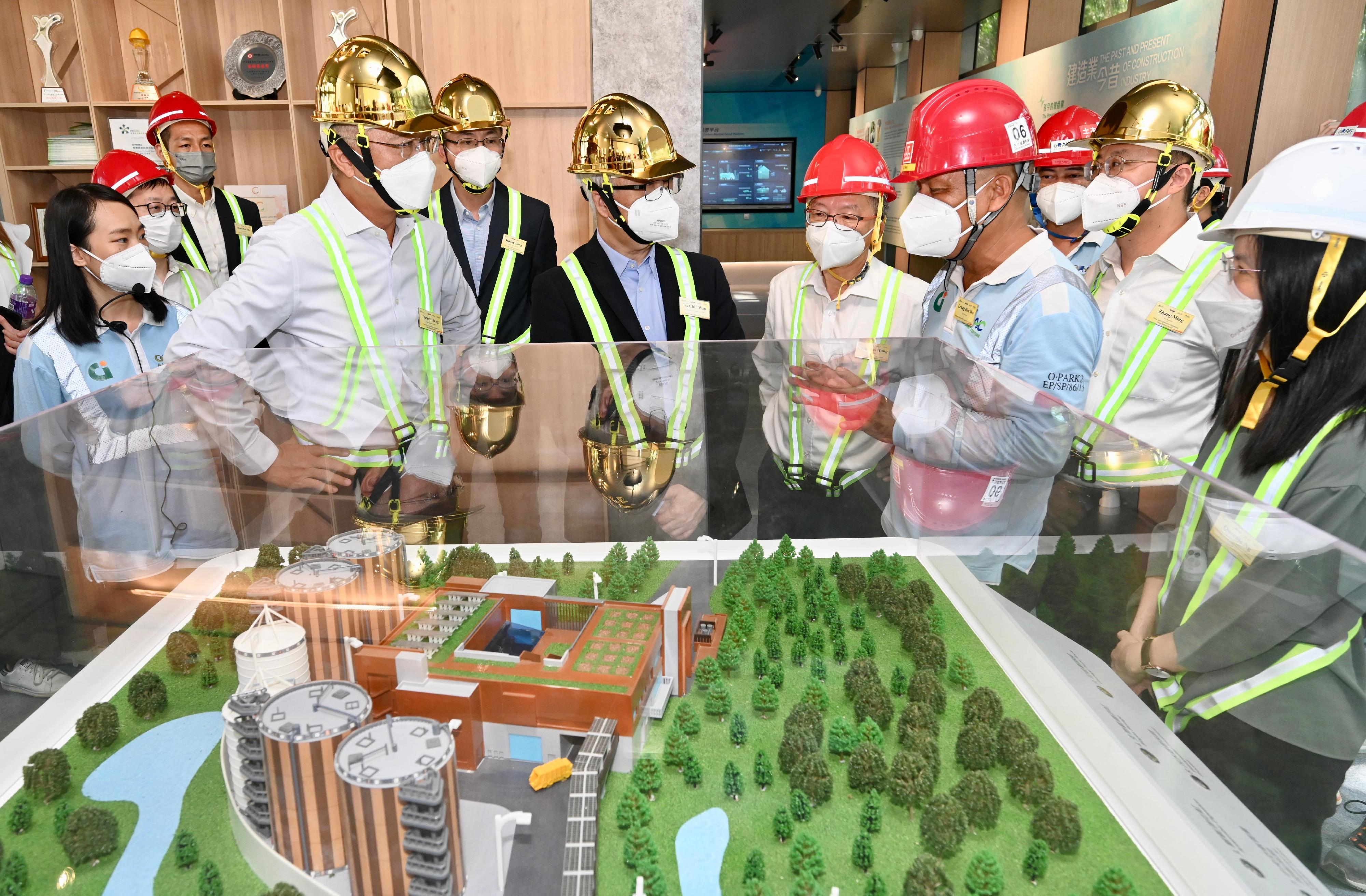Topping-out ceremony for Organic Resources Recovery Centre Phase 2 (O · PARK2) held (with photos)
******************************************************************************************
At the topping-out ceremony, the Secretary for Environment and Ecology, Mr Tse Chin-wan, said that O · PARK2 is the second organic resources recovery centre in Hong Kong. The topping-out ceremony of the project marks a new milestone in the food waste recycling network, which will double the overall processing capacity of local food waste recycling.
The current overall food waste treatment capability in Hong Kong, from the Organic Resources Recovery Centre Phase 1 (O · PARK1) and the Food Waste/Sewage Sludge Anaerobic Co-digestion Trial Scheme at the Tai Po Sewage Treatment Works, is about 250 tonnes per day. Together with the Food Waste/Sewage Sludge Anaerobic Co-digestion Trial Scheme at the Sha Tin Sewage Treatment Works which will come into operation in 2023, Hong Kong's overall food waste treatment capacity is expected to increase to 600 tonnes per day upon O · PARK2's opening.
The Government announced in 2021 the Waste Blueprint for Hong Kong 2035, setting out the vision of "Waste Reduction‧Resources Circulation‧Zero Landfill". In 2020, there were around 3 200 tonnes of food waste disposed at landfills in Hong Kong per day, representing about 30 per cent of local municipal solid waste. To achieve the goal of "Zero Landfill", the Government will continue to develop waste-to-energy facilities, with a view to progressively replacing the disposal of municipal solid waste in landfills. This includes the expansion of the organic resources recovery centres to raise food waste treatment capacity, alleviate pressure and odour problem of landfills, and lower greenhouse gas emissions.
O · PARK2 will convert food waste into electricity and fertiliser with anaerobic digestion technology to recycle food waste into renewable energy. It is estimated that about 67 000 tonnes of greenhouse gas emissions can be reduced each year. O · PARK2 is the most advanced low-carbon construction project in Hong Kong currently. During construction, the contractor applied low-carbon construction techniques such as using low-carbon cement and steel bars, and offsetting the remaining carbon emissions by collating carbon credits, so as to achieve carbon neutrality during construction, provide valuable experience and set an example for low-carbon building initiatives in Hong Kong.
In operation, O · PARK2 will generate electricity with biogas, providing renewable energy for Hong Kong and reducing electricity generation by fossil fuels. In addition, it will reduce organic waste to be disposed in landfills, helping cut down on carbon emissions.
Ends/Thursday, October 6, 2022
Issued at HKT 13:39
Issued at HKT 13:39
NNNN







